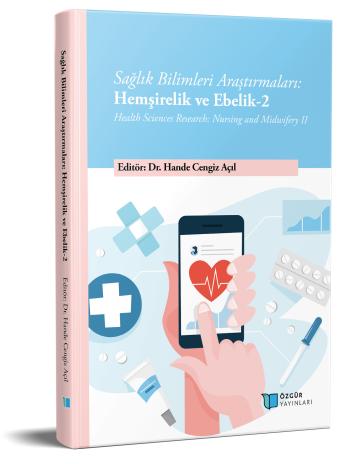
Early Post-Anesthesia Complications and Nursing Care
Chapter from the book:
Cengiz Açıl,
H.
(ed.)
2023.
Health Sciences Research: Nursing and Midwifery II.
Synopsis
The post-anesthesia care unit (PACU), designed for the recovery and monitoring of the changing physiological parameters during the intraoperative period, is located close to the operating room and provides quick access and access to consultation. A number of problems related to anesthesia or surgery may occur in the early postoperative period. The main purpose of PACU is to preserve vital functions, to identify complications that may occur in the early period after anesthesia, to prevent complications and to treat developing complications, and to maintain hemostatic balance. Nurses are the primary responsible professional team in the post-anesthesia care unit. Nurses should prevent airway obstruction, monitor and position the patient, and obtain information about the patient's medical history, type of surgery, duration of anesthesia, fluids given during the surgery, and complications during anesthesia during the transport process of the patient taken from the operating room to the PACU. After the patient is admitted to the PACU, the patient's arrival time, consciousness status, vital signs, intravenous fluid support to be given, dressing status, bleeding control, whether urinary catheters and drains are open, urine color and amount should be checked. Although the duration of stay in PACU is variable, nurses should manage parameters such as the patient's awareness, stability of vital signs, and fulfillment of vital reflexes during the transfer process of patients to the clinic. It is very important to prevent and reduce the development of complications throughout the process. For this reason, it is necessary to provide training to the nurses who are primarily responsible for PACU, to prevent complications, to manage them appropriately and to increase the quality of care, and to develop and implement PACU care protocols.

